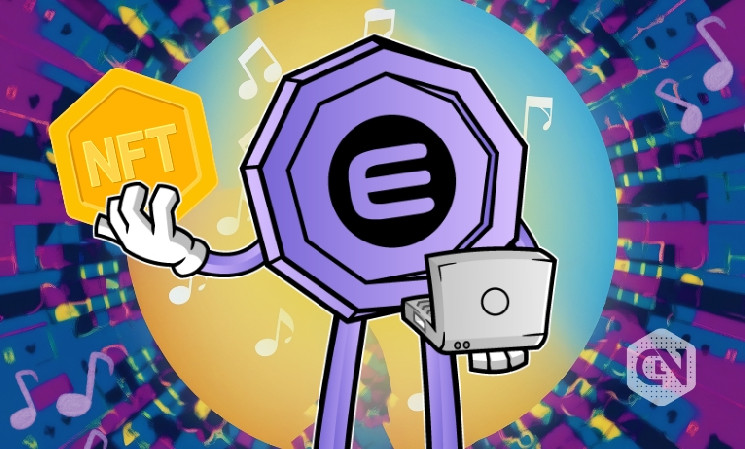Enjin has announced a collaboration with George Murphy and The Rising Suns. The goal is to expand NFT reach to one billion users through the Enjin ecosystem. This is George Murphy’s first foray into the non-fungible token space. They will work together to offer tokenized vinyl records.
Two other partners are involved in the development: New York Culture Club and The Squirrel. The former specializes in integrating NFC chips into items, while the latter is the NFT.io hosted by Kevin and Bob.
The mechanism of the partnership is quite simple. The vinyl will feature various works of art, including those of George Murphy and The Rising Sons. Owners of the digital piece can first tap their NFC-enabled phone to verify ownership and then unlock tokenized assets. The Enjin NFT certificate is hosted by NFT.io to prove authenticity.
At its core are also the foundations of risk-weighted assets. The idea behind creating the partnership is to symbolize vinyl – increasing digital ownership and real-world assets, colloquially known as RWAs. They are essentially tokens that symbolize a specific physical asset in the digital world.
What attracted George Murphy to NFTs is the opportunity to connect with fans around the world. It essentially serves two purposes: facilitate cross-border engagement and expand reach beyond its current base of more than 600 million listeners. Murphy has welcomed this development, saying that they can now get closer to their audience through NFTs.
The offer is likely to include concert tickets, proof of tune ownership, exclusive sneak peeks and live digital concerts. The development is in line with their goal to always look for ways to connect with multiple fans. Holding tokens works like a membership. This gives community members access to features that no one else can see.
Most importantly, by entering the NFT sphere, George Murphy can increase economic opportunities for his artwork.
He will be the sole controller of the ways in which his content is distributed, monetized and shared. It is safe to assume that the practices of NFT holders must fall within the pre-defined criteria to avoid any kind of conflict. This will help maintain the integrity of artwork by expanding its reach to a wider range of audiences. There is no direct criticism of traditional methods, but it is believed that they often leave too much on both sides and do not allow for direct involvement.
Enjin brings up the functionality of royalties on the chain. It draws a flat percentage for artists every time their work is traded or sold on the digital marketplace – in this case, the Enjin marketplace.
This isn’t the first time NFTs have gone mainstream. Several companies have successfully explored the landscape in the past. There is only the challenge of starting with NFT too early, as it has yet to achieve mass adoption. The current number of members in the community does little justice to what is there. Seizing this opportunity now could prove lucrative in the future as Enjin and other platforms make efforts to onboard a billion users.









